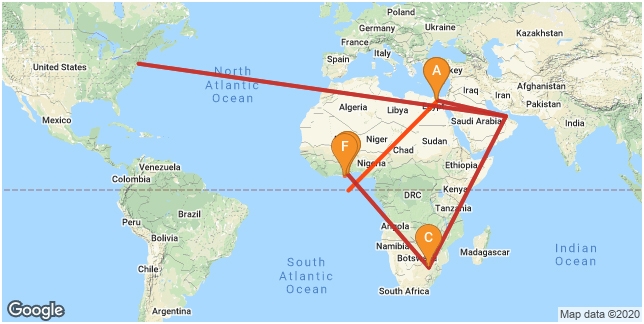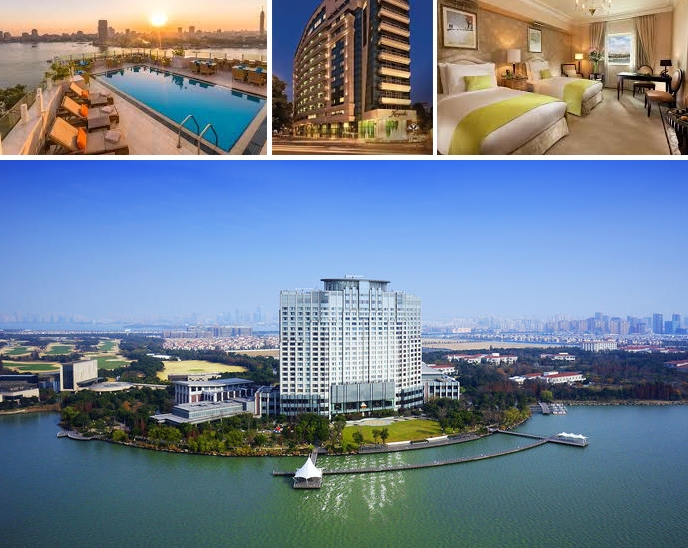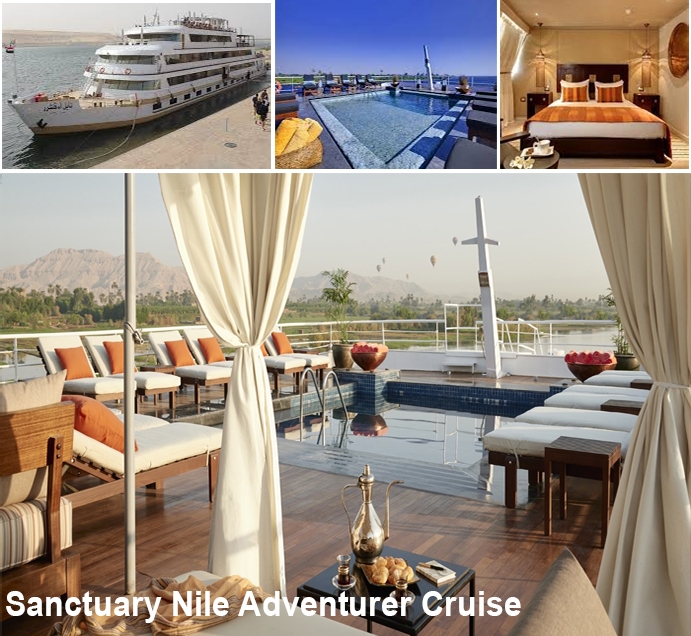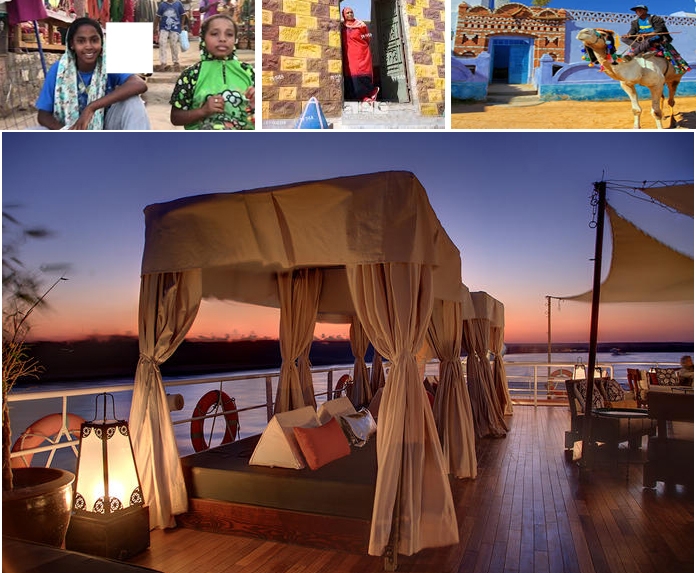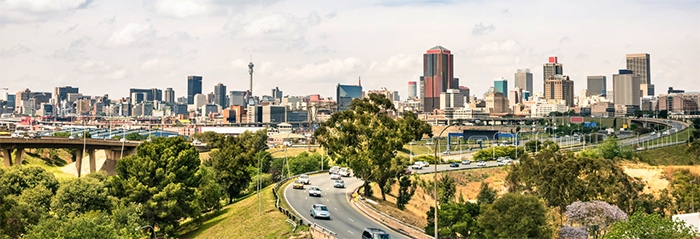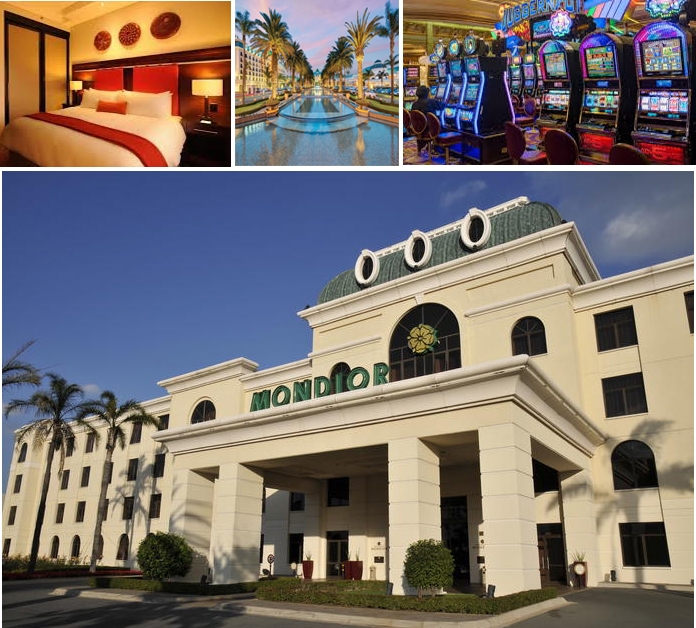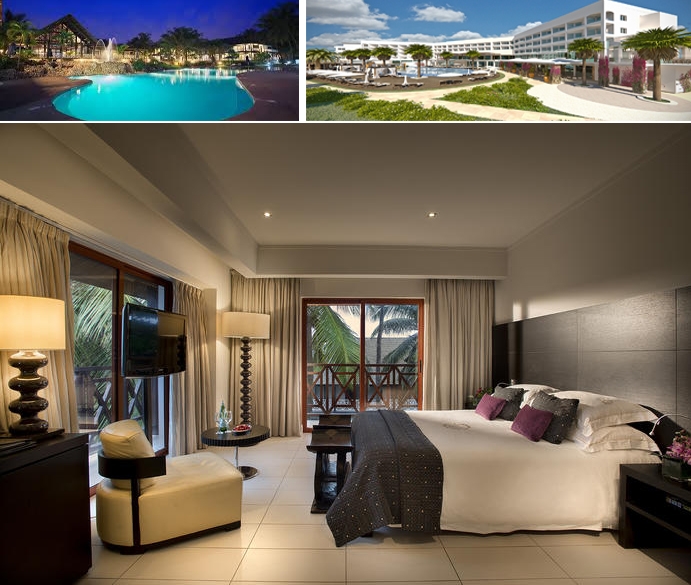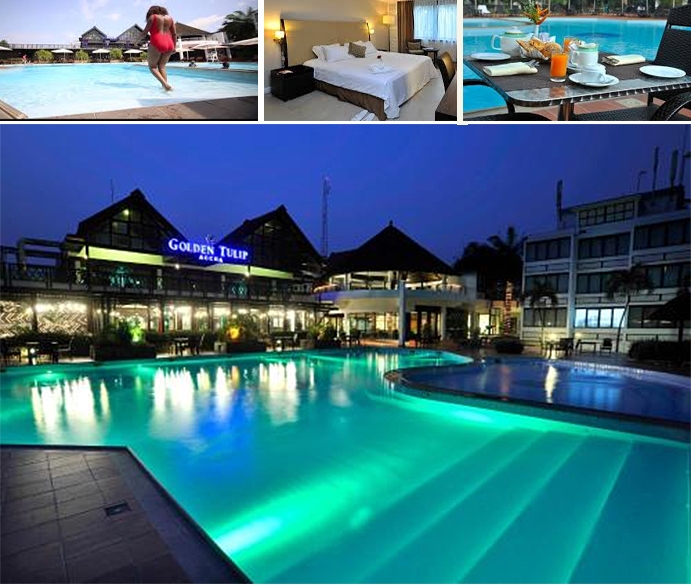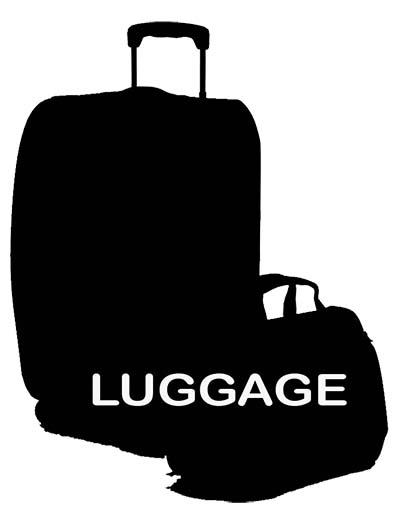Egypt Nile and Ghana Adventure
November 4 – November 21, 2021
Cairo + Aswan + Luxor &
Johannesburg + Accra + Elmina
18 – Splendid Days!
17 – Enchanting Nights!

This is the trip of a lifetime!!!
=Limited Space Available=
“Join us on this exciting cultural adventure to discover ancient Egypt (Kemet) along with the splendors of the “Gold Coast” Ghanaian cities of Accra and Elmina. This trip is packed with great value, and YES, we always provide a flexible payment plan, and non-golfers you are always welcomed.”
Debert Cook
Publisher
African American Golfer’s Digest
BOOK NOW! Make your $500 Deposit TODAY
Call 212-571-6559
Our Travel Route:

Included
- International flight JFK/NY to Cairo, Egypt.
- Entry Visa to Egypt.
- Accommodation as above mentioned.
- Domestic flights-Economy class. (Cairo / Luxor & Aswan / Cairo)
- Airport transfers in modern Air-conditioned vehicle with service of Tour Coordinator escorting clients from each point to the next distention.
- All tours as described in the program with private English-speaking Egyptologist in Cairo only & sharing local guide with other guests on board the cruise.
- All the admissions for the sightseeing stated in the program.
- Entry to Cheops, Solar Boat & Camel ride are included during Pyramids tour.
- Entry to King Tut, Ramses VI, Seti I &Nefertari tombs are included during West Bank tour in Luxor.
- All meals as mentioned in the program including tea, coffee and mineral water.
- Portage at airports and hotels.
- Mineral water on vehicle.
Excluded
- Any meal that is not mentioned within the program.
- Beverages rather than what mentioned under inclusions will be charged as per consumption and payable directly to the restaurant suppliers.
- Gratuities for the guides and drivers or any other kind of tips.
- Private Guide throughout the trip.
- Private local guide on board the cruise.
- Camera ticket at sights where allowed.
- Abu Simbel excursion.
Day 1: Wednesday, November 4
Overnight Travel
Day Itinerary
Depart from New York (JFK) for your flight to Dubai
Day 2: Thursday, November 5
Kempinski Nile Hotel Garden City Cairo, Cairo
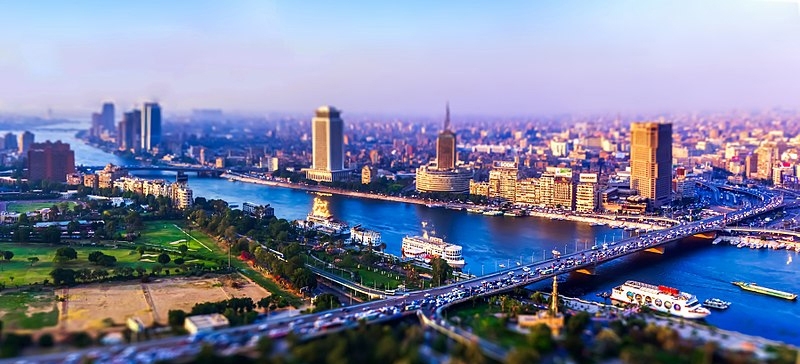
Resting on both banks of the River Nile, Cairo is the capital of Egypt and the largest city in the Arab world. Cairo has been inhabited for over 6000 years and has served as the capital of numerous Egyptian civilizations. At the heart of the city is Tahrir Square, a busy tourist hub which features the world-renowned Egyptian Museum displaying an array of antiquities including royal mummies and gilded King Tutankhamun artifacts. Nearby, Giza is the site of the iconic pyramids and the Great Sphinx, dating back to the 26th century BC. While these and countless other ancient treasures are undoubtedly the main drawcards, the cosmopolitan Cairo is certainly not lacking in modern attractions. Visitors can get to know the locals at boisterous Baladi bars, enjoy excellent shopping at the Khan al-Khalili Bazaar, watch the sunset from the impressive Cairo Tower, or catch a show at the stately Cairo Opera House.
Day Itinerary
Visa Purchase: Your Tour Coordinator will complete pre-purchase of visa stamps prior to your arrival.
16:50 Upon arrival at Cairo International Airport, you are met by a representative, who will be holding a sign with your family name. You are then privately transferred to Kempinski Nile Hotel.
Elegant and stylish, the Kempinski Nile Hotel is located on the banks of the Nile, a short walk from downtown and is a glamorous base from which to escape the bustle of downtown. Furnished in classical Art-deco style with flourishes of Egyptian art, the 191 bedrooms over 11 floors are all comfortably furnished and accompanied by private balconies with Nile views. All bedrooms feature a bathtub and separate shower, air conditioning, TV and complimentary mini-bar stocked with soft drinks. All rooms are assigned a personal 24-hour butler to cater to your every need.
The hotel’s alfresco lounge and pool is the place to watch the sun set over the Nile while sharing a traditional shisha or savoring a cocktail. The hotel has four restaurants and lounges to choose from, each serving its own unique menu. The chocolate lounge offers guests a chance to indulge their sweet tooth with a chocolate menu, French pastries and afternoon tea from around the world.
The luxurious spa offers a wide range of holistic treatments and provides a steam bath, Jacuzzi and a fully-equipped gym with personal trainer service.
In a nutshell:
– Located in the historic Garden City quarter
– All bedrooms and suites have private balconies
– Complimentary mini-bar stocked with soft drinks
– In-room personal butler service
– Facilities include an outdoor swimming pool, spa and gym
– Complimentary wifi in the bedrooms and throughout the hotel
The remainder of the day is at leisure.
Lunch & dinner are under your own arrangements.
Overnight: Kempinski Nile Hotel Garden City Cairo
Kempinski Nile Hotel Garden City Cairo is a 5-star luxury boutique hotel in Cairo where contemporary European flair meets with Egyptian charm. Set in the heart of the city, in the bustling Garden City district and on the banks of the River Nile, Kempinski Nile Hotel offers 137 rooms and 54 suites and guests can delight in the views across the Nile as most of the rooms and suites have their own private balcony. Kempinski Nile Hotel offers its guests state-of-the-art technology within an engaging environment and exceptional culinary experiences at the four restaurants and lounges within the hotel.
Basis
Bed and Breakfast
Day 3: Friday, November 6
Kempinski Nile Hotel Garden City Cairo, Cairo
Day Itinerary
08:00Meet your guide in the lobby of your hotel to start your tour.
Pyramids and Sphinx: The Great Pyramids of Giza are the only present-day survivors of the Seven Wonders of the Ancient World, built about 4500 years ago, as giant tombs for the mummies of the pharaohs Khufu, Khafre and Menkaure, who were a father, son and grandson. (Cheops, Chephren and Mycerinus are the Greek forms of their names.) In the ancient Egyptian religion, the sides of the pyramids were likened to sun rays on which the Pharaoh ascended to heaven. The pyramids are truly monumental in scale, with the largest, Khufu’s, made of over two million blocks. The pyramids were not built by slaves but by Egyptian peasants who paid their taxes to the Pharaoh through this labor, and were fed, clothed and housed by him.
Included in your tour is entry to Cheops Pyramid and the Solar Boat Museum.
A camel ride is also included.
Nearby sits the enigmatic Sphinx with the body of a lion and the face of a man wearing a royal head cloth, which workers may have based on King Khafre to guard his enormous funerary monument. About a thousand years after the Sphinx was built it was covered in sand until a young prince had a dream in which the Sphinx told him that if he cleared the sand away, he would become Pharaoh. This story is told on the ‘Dream Stela’ that was placed between the Sphinx’s paws by King Tuthmose IV.
Lunch is served at AbouShakra – Sphinx
Located in plain sight of the great pyramids of Giza and the Sphinx and with floor-to-ceiling windows overlooking this iconic view, Abu Shakra serves some of the best, local food in Egypt. Start with a traditional mezze of hummus, tehina and baba ghanoush before grilled kebabs, kofta, chicken or ribs with a side of sautéed vegetables and rice.
Egyptian Museum: You’ll tour 7,000 years of history at this museum which houses the largest collection of ancient Egyptian art in the world. Don’t miss the treasures of the boy-king Tutankhamun, including his gold mask, the solid gold sarcophagus that held his mummy, and his beautiful throne.
16:00 At the end of your tour, you are transferred to your hotel.
Dinner tonight is under your own arrangements.
Kempinski Nile Hotel Garden City Cairo
Activities
| Great Pyramid of Giza |
| Great Sphinx of Giza |
Day 4: Saturday, November 7
Sanctuary Nile Adventurer Cruise
Day Itinerary
07:15 Your Tour Coordinator escorts you to Cairo Domestic Airport by air-conditioned vehicle.
09:45 Board your Egypt-Air flight to Luxor.
10:50 Arrive Luxor. Transfer by air-conditioned vehicle to Sanctuary Nile Adventurer (Ship).
The elegant Sanctuary Nile Adventurer has just 32 cabins, offering a luxurious yet relaxing cruise on the Nile. Decorated in a contemporary style, the ship’s design combines modern Egyptian culture with seven thousand years of heritage. Add gourmet cuisine and sightseeing experiences with the country’s most experienced Egyptologists, this is a taste of genuine 5-star luxury on a timeless river. The Sanctuary Nile Adventurer seamlessly blends contemporary Egyptian culture with authentic character, a blend of East and West. The extensive sun deck areas, with their elegant teak floors, include private cabanas around the pool area, the perfect spot for relaxing while taking in the scenery.
Entertainment onboard the Sanctuary Nile Adventurer
Exact entertainment schedules during your cruise are adjusted according to the needs of each group and the sailing schedules of the boat are subject to change. However, every cruise on the Sanctuary Nile Adventurer will include:
- A colorful Galabeyya Party! which gives each guest the opportunity to dress up in traditional Egyptian dress and dance to Arabic music.
- A Folkloric show accompanied by a whirling dervish show in Aswan.
- A lecture by your Egyptologist guide.
Food & Beverage
Menus are changed on a seasonal basis to enable the Chef to use the freshest ingredients at all times. However, the following is applicable to every cruise:
- Most meals are served in the restaurant. However, at least one barbecue lunch (while sailing) will be served on deck (weather permitting).
- Mineral water, tea and American coffee are included with every meal.
Please note: that the strength of the WI-FI signals unavoidably varies depending on geographical location, especially whilst sailing in the more remote areas of Upper Egypt.
Check-in to your five-star deluxe Nile cruise boat where you are welcomed by the reception staff. Straight away, you have the opportunity to visit the strikingly graceful Temple of Luxor.
After lunch on board, visit the West Bank of Luxor to explore the Valley of the Kings. You also have the chance to visit at least one tomb in the Valley of the Queens and visit the Temple of Queen Hatshepsut. On the way back to the river Nile, pass by the famed Colossi of Memnon, known in Ancient Greek times for their haunting voices at dawn.
This evening you are greeted by your Boat Manager for a cocktail reception, who reviews your cruise program for the upcoming days. Enjoy Egyptian wine and beer with a selection of freshly-prepared canapés, followed by a gourmet dinner. A folkloric show and a Whirling Dervish show.
After breakfast on board, begin your day with a visit to the Temple of Karnak.
Lunch is served in the lounge whilst you sail to Esna
After Lunch, your Egyptologist guides you round the Greco-Roman Temple of Khnum at Esna. The beautifully-preserved Great Hypostle Hall was built during the reign of the Roman Emperor Claudius; it was excavated from the silt that had accumulated through centuries of annual Nile floods and is about nine meters lower than present-day street level.
Afternoon tea is served as you cruise to Edfu and, later, enjoy a gourmet dinner.
Overnight: Sanctuary Nile Adventurer
The elegant Sanctuary Nile Adventurer (ship) has just 32 cabins, offering a luxurious yet relaxed cruise on the Nile. Decorated in a contemporary style, the ship’s design combines modern Egyptian culture with seven thousand years of heritage. Add gourmet cuisine as well as sightseeing experiences with the country’s most experienced Egyptologists, this is a taste of genuine 5-star luxury on a timeless river.
The Sanctuary Nile Adventurer seamlessly blends contemporary Egyptian culture with authentic character, a blend of East and West. The extensive sun deck areas, with their elegant teak floors, include private cabanas around the pool area, the perfect spot for relaxing while taking in the scenery.
Activities
| Aswan |
Aswan
Situated on the east bank of the Nile in the south of Egypt, Aswan is an arid, modern and popular city with a relaxing, Northern African atmosphere. The city is home to a number of significant archaeological sites and makes an excellent base for exploring the many world-class attractions of the surrounding area. Visitors can enjoy the beautiful views by way of slow walks along the wide corniche, or while dining on fresh seafood at one of the town’s charming floating restaurants. In the evenings, Nubian dancers, musicians and folklore troupes performing at the Cultural Centre provide memorable entertainment. City highlights include: a large, lively central market and the Nubian Museum showcasing some of Southern Egypt’s most important historical artifacts.
Basis
Full Board – Dinner, Bed, Breakfast and Lunch
Onboard Sanctuary Nile Adventurer
Day 5: Sunday, November 8
Sanctuary Nile Adventurer (Ship)
Day Itinerary
After breakfast on board, begin your day with a visit to the Temple of Karnak.
Lunch is served in the lounge whilst you sail to Esna
After Lunch, your Egyptologist guides you round the Greco-Roman Temple of Khnum at Esna. The beautifully-preserved Great Hypostle Hall was built during the reign of the Roman Emperor Claudius; it was excavated from the silt that had accumulated through centuries of annual Nile floods and is about nine meters lower than present-day street level.
Afternoon tea is served as you cruise to Edfu and, later, enjoy a gourmet dinner.
Basis
Full Board – Dinner, Bed, Breakfast and Lunch
Onboard Sanctuary Nile Adventurer Ship
Day 6: Monday, November 9
Sanctuary Nile Adventurer
Day Itinerary
Following breakfast, explore the Temple of Edfu.
Lunch is served as you cruise to KomOmbo and, after, visit the Temple of KomOmbo, dedicated to the crocodile-god Sobek. The temple stands at a bend in the Nile where in ancient times sacred crocodiles basked in the sun on the riverbank.
Later, afternoon tea is served in the lounge and you have the chance to take part in an Egyptian cooking lesson as you sail to Aswan.
Tonight’s dinner on board is an Egyptian Night costume party for all guests, with a chance to dress up in traditional Egyptiangalabeyya. Dinner is a lavish buffet of Egyptian specialties.
Basis
Full Board – Dinner, Bed, Breakfast and Lunch
Onboard Sanctuary Nile Adventurer Ship
Day 7: Tuesday, November 10
Sanctuary Nile Adventurer
Day Itinerary
A breakfast buffet is served on board and the morning is yours to enjoy at leisure.
Enjoy lunch on board, followed by a short motorboat ride to visit the majestic Philae Temple on the Island of Agilika.
Next proceed to the Granite Quarries, which supplied the ancient Egyptians with most of the hard stone used in pyramids and temples. Here you see the Unfinished Obelisk, located in the northern region of the stone quarries.
Next take a ride on a felucca(a typical Egyptian sail boat) around Elephantine Island, Lord Kitchener’s Botanical Gardens and the Agha Khan Mausoleum (weather permitting, life jackets will be provided).
Afternoon tea is served on board and your farewell dinner is a gala dinner, with white-gloved waiters serving gourmet cuisine. A folkloric show and a Whirling Dervish show follow.
Basis
Full Board – Dinner, Bed, Breakfast and Lunch
Onboard Sanctuary Nile Adventurer Ship
Day 8: Wednesday, November 11
Kempinski Nile Hotel Garden City Cairo, Cairo
Day Itinerary
A buffet breakfast is served on board the Sanctuary Nile Adventurer ship, before check-out.
06:20 Transfer by air-conditioned vehicle to Aswan Airport.
08:20 Board your Egypt-Air flight to Cairo.
09:40Arrive Cairo.
Upon arrival at Cairo Domestic Airport, you are met by a representative, who will be holding a sign with your family name. You are then privately transferred to Kempinski Nile Hotel.
Hotel check in time is at 15:00.
The remainder of the day is at leisure.
Lunch & dinner are under your own arrangements.
Overnight: Kempinski Nile Hotel Garden City Cairo
Kempinski Nile Hotel Garden City Cairo is a 5-star luxury boutique hotel in Cairo where contemporary European flair meets with Egyptian charm. Set in the heart of the city, in the bustling Garden City district and on the banks of the River Nile, Kempinski Nile Hotel offers 137 rooms and 54 suites and guests can delight in the views across the Nile as most of the rooms and suites have their own private balcony. Kempinski Nile Hotel offers its guests state-of-the-art technology within an engaging environment and exceptional culinary experiences at the four restaurants and lounges within the hotel.
Day 9: Thursday, November 12
Overnight Travel
Day Itinerary
After breakfast and your morning at leisure, you will be transferred to Cairo Airport for your flight to Dubai.
Upon arrival in Dubai you will connect onwards for your overnight flight to Johannesburg.
Day 10: Friday, November 13
Peermont Mondior Hotel at Emperors Palace, Johannesburg
Day Itinerary
Upon your early arrival in Johannesburg you will be met and transferred to your hotel.
Enjoy your day at leisure.
Overnight on a bed and breakfast basis at Peermont Mondior Hotel at Emperors Palace.
Overnight: Peermont Mondior Hotel at Emperors Palace
Enjoy elegance at an attractive price…the 4-star Peermont Mondior hotel at Emperors Palace sets an exciting standard in world-class business, conference and leisure accommodation. The hotel features 150 spacious rooms and suites furnished in contemporary African elegance and fitted with cutting-edge technology. Its convenient location next to O.R. Tambo International Airport makes it suitable for business and leisure travelers. Enjoy breakfast and light meals at the chic Oriana restaurant or a sociable cocktail at The Silver Moon bar. Guests have access to the casino, dining, entertainment, convention and relaxation facilities of the Emperors Palace hotel, casino and convention resort.
Day 11: Saturday, November 14
Labadi Beach Hotel, Accra
Day Itinerary
After breakfast and your morning at leisure, you will be transferred to Johannesburg Airport for your flight to Ghana.
On arrival at Kotoka International Airport you will be met and transferred to your hotel.
Overnight on a bed and breakfast basis at Labadi Beach Hotel or similar
Day 12: Sunday, November 15
Labadi Beach Hotel, Accra
Day Itinerary
After breakfast you will depart on a Full Day tour of Accra.
Visit the W.E.B. Du BoisCenterhonoring the life of one of the most prominent Pan-Africanists who chose to live and work in Ghana. Independence Square, Accra’s open-air ceremonial grounds where all national celebrations are held. Continue to the Kwame Nkrumah Mausoleum and museum, a tribute to Ghana’s first President. This park, formally called the Polo grounds, is where Dr. Kwame Nkrumah declared the independence of Ghana.
Overnight on a dinner, bed and breakfast basis at Labadil Beach Hotel or similar
Basis
Dinner, Bed and Breakfast
Day 13: Monday, November 16
Golden Tulip, Accra
Day Itinerary
After breakfast you will depart the hotel and head to Kumasi, the capital of the Ashanti Kingdom.
Visit the Manhiya Palace, built to receive The Asantehene (ruler of the Ashanti people) Prempeh; it now serves as a museum, containing a range of items relating to the Ashanti Kingdom, particularly Prempeh I (ruled 1888-1931) and Prempeh II (ruled 1931-1970). Visit the nearby OkomfoAnokye Sword, an important symbol of Ashanti unity that marks the spot where the Golden Stool “descended from the sky” and has been in place for 300 years. Legend says the Ashanti Kingdom would collapse should the sword ever be removed.
Overnight on a dinner, bed and breakfast basis at Golden Tulip Kumasi or similar.
Overnight: Golden Tulip
Basis
Dinner, Bed and Breakfast
Day 14: Tuesday, November 17
Golden Tulip, Accra
Day Itinerary
After breakfast you will depart and visit the Ashanti craft villages:
The woodcarving village of Ahwiaa, known for the talented craftsmen who fashion royal stools, walking sticks and fertility dolls from wood. You will have the opportunity to purchase hand-carved items of all kinds.
The Village of Ntonso where artisan’s hand-stamp patterns on cotton cloth to make Adinkra textiles. Black-on-black and black-on-red Adinkra cloth is worn for funerals and other solemn occasions. You will learn how the black dye is made in the village from the bark of trees, and create your own Adinkra sash to take home. You may also purchase large pieces of Adinkra cloth handmade in the village.
The village is Bonwire, where the famous Kente cloth is handmade on looms in a time-honored tradition passed down through generations. You will see the Kente weavers in the process of creating Kente cloth in various styles, and have the opportunity to purchase souvenirs or gifts.
This evening visit the Kumasi Central Market (also known as Kejetia Market), the largest open-air market in West Africa, where more than 10,000 vendors sell their wares. Here you will find just about everything, food, fabric, beauty products, handmade crafts.
Overnight on a dinner, bed and breakfast basis at Golden Tulip Kumasi or similar
Basis
Dinner, Bed and Breakfast
Day 15: Wednesday, November 18
Coconut Grove Beach Resort, Elmina

Located along the south coast of Ghana, the fishing port of Elmina is best-known for its beautiful beaches and serves as the capital of the region. It is also known as a historical slave trading port and offers visitors a glimpse into the tragic history of the slave trade. Visitors can learn more about the area’s past by visiting a number of fascinating sites including: the 17th-century Fort St. Jago, the Elmina Java Museum, the Dutch Cemetery and Elmina Castle, built by the Portuguese in 1482, it is the oldest European building in existence south of the Sahara.
Day Itinerary
After breakfast you will depart and head to the Cape Coast.
Stop at the Gold mine town of Obuasi and AssinManso, the burial site of two former slaves from the U.S. and Jamaica. Visit the “Slave River” where captured Africans bathed before being confined in the Slave Castles to await shipment to the Americas and the Caribbean.
This evening go on a guided tour through the ancient town of Elmina.
At the harbor, view the colorful fishing canoes getting ready to go to sea for another night’s task of fishing. This is a picture-perfect opportunity for photographers.
Overnight on a dinner, bed and breakfast basis at Coconut Beach Resort or similar
Overnight: Coconut Grove Beach Resort
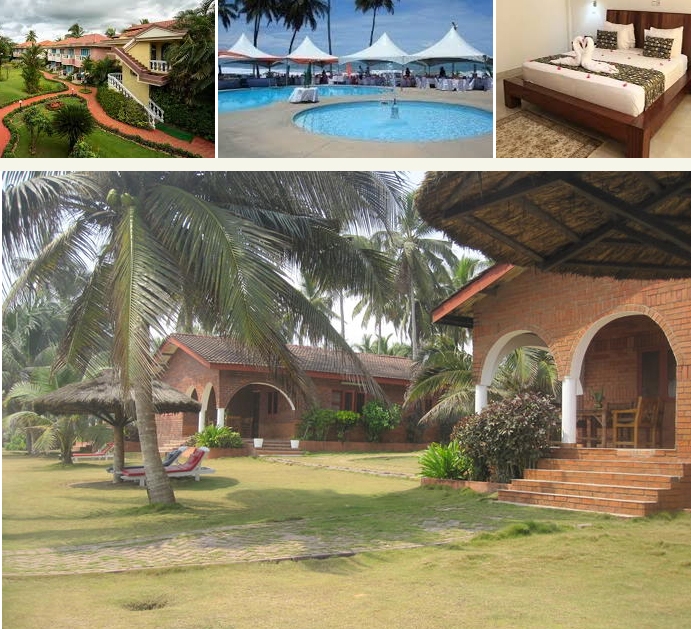
Coconut Grove Beach Resort is set on the oceanfront in Elmina. The resort’s guest rooms are equipped with Wi-Fi, TV, air-conditioning, ceiling fan, telephone, and a refrigerator. For guest’s enjoyment, there is an outdoor swimming pool, clay tennis courts, basketball court, gym and an 18 hole golf course. For daily activities, guests can explore the resort’s mini animal sanctuary or spend the day at the beach and horseback riding.
Basis
Dinner, Bed and Breakfast
Day 16: Thursday, November 19
Coconut Grove Beach Resort, Elmina
Day Itinerary
After breakfast you will depart and visit Elmina Castle, a UNESCO World Heritage Site built in 1482.
This castle was the first European structure built in sub-Saharan Africa. In the afternoon visit Cape Coast Castle and the Castle Museum for a guided tour. Cape Coast Castle is a UNESCO World Heritage Site, and was one of the departure points for Africans being sent into slavery in the Americas. The castle is home to the “Door of No Return”.
Overnight on a dinner, bed and breakfast basis at Coconut Beach Resort or similar.
Basis
Dinner, Bed and Breakfast
Day 17: Friday, November 20
Overnight Travel
Day Itinerary
Today you will be transferred to the airport for your flights to the US.
Day 18: Saturday, November 21
End of Itinerary
Day Itinerary
Arrival in the US!
Welcome Home!!
Round Trip Airfare to/from New York (JFK)
EK 204 04NOV JFKDXB 1040A 810A+1
EK 921 05NOV DXBCAI 1200P 215P
EK 928 12NOV CAIDXB 1225P 545P
EK 767 12NOV DXBJNB 1125P 535A+1
SA 209 14NOV JNBACC 605P1005P
SA 210 20NOV ACCJNB 935A 525P
EK 764 20NOV JNBDXB 650P 505A+1
EK 205 21NOV DXBJFK 905A 700P
Please note that all availability and pricing is subject to change until time of booking by which a credit card must be given to solidify all reservations and lock in all pricing
Price Based on Double Occupancy
| LAND PORTION Per Person sharing a room | ||
| USD | $8,100.00* |
| INTERNATIONAL AIRFARE Per Person – Published, Non-Refundable, Non Transferable | Airfare quotes are inclusive of all fuel, taxes, fees and airline surcharges | |
| ESTIMATED 2020 | USD | $2,380.00* |
| TOTAL Per Person (Land and Airfare) Per Person | ||
| USD | $10,480.00* |
*Itinerary subject to change.
CANCELLATION POLICY: Deposits are non-refundable.
 **Important Notice: Your passport must have four blank visa pages (two facing pages – two facing pages) for any visas and entry stamps upon arrival in South Africa. (Please make sure the blank pages say “Visa” at the top) If visiting other countries, more will be required. Also, your passport must be valid for six months after the intended date of return from South Africa.** Only MACHINE READABLE TRAVEL DOCUMENTS (MRTDs) will be accepted to enter South Africa with effect from 24 November 2015. Please note that extended passports won’t be accepted any longer. For this reason, we advise you to closely check your travel documents.
**Important Notice: Your passport must have four blank visa pages (two facing pages – two facing pages) for any visas and entry stamps upon arrival in South Africa. (Please make sure the blank pages say “Visa” at the top) If visiting other countries, more will be required. Also, your passport must be valid for six months after the intended date of return from South Africa.** Only MACHINE READABLE TRAVEL DOCUMENTS (MRTDs) will be accepted to enter South Africa with effect from 24 November 2015. Please note that extended passports won’t be accepted any longer. For this reason, we advise you to closely check your travel documents.
Transport
Flight Information
| Date | Flight | Airline | Departure Airport | Time | Arrival Airport | Time | Class | Ref |
| 4 Nov | Scheduled | JFK International Airport [JFK] | Dubai International Airport [DXB] | |||||
| 4 Nov | Scheduled | Dubai International Airport [DXB] | Cairo International Airport [CAI] | |||||
| 12 Nov | Scheduled | Cairo International Airport [CAI] | Dubai International Airport [DXB] | |||||
| 12 Nov | Scheduled | Dubai International Airport [DXB] | OR Tambo International Airport [JNB] | |||||
| 14 Nov | Scheduled | OR Tambo International Airport [JNB] | Kotoka International Airport [ACC] | |||||
| 20 Nov | Scheduled | Kotoka International Airport [ACC] | OR Tambo International Airport [JNB] | |||||
| 20 Nov | Scheduled | OR Tambo International Airport [JNB] | Dubai International Airport [DXB] | |||||
| 21 Nov | Scheduled | Dubai International Airport [DXB] | JFK International Airport [JFK] |
Transfers
| Date | Company | Pick Up | Drop Off | Time | Vehicle |
| 5 Nov | Cairo International Airport [CAI] | Kempinski Nile Hotel Garden City Cairo | Transfer | ||
| 7 Nov | Kempinski Nile Hotel Garden City Cairo | Sanctuary Nile Adventurer | Transfer | ||
| 11 Nov | Sanctuary Nile Adventurer | Kempinski Nile Hotel Garden City Cairo | Transfer | ||
| 12 Nov | Kempinski Nile Hotel Garden City Cairo | Cairo International Airport [CAI] | Transfer | ||
| 13 Nov | OR Tambo International Airport [JNB] | Peermont Mondior Hotel at Emperors Palace | Transfer | ||
| 14 Nov | Peermont Mondior Hotel at Emperors Palace | OR Tambo International Airport [JNB] | Transfer | ||
| 14 Nov | Kotoka International Airport [ACC] | Labadi Beach Hotel | Transfer | ||
| 16 Nov | Labadi Beach Hotel | Golden Tulip | Transfer | ||
| 18 Nov | Golden Tulip | Coconut Grove Beach Resort | Transfer | ||
| 20 Nov | Coconut Grove Beach Resort | Kotoka International Airport [ACC] | Transfer |
Travel Information
Egypt is one of Africa’s major tourist destinations with the main drawcards being the Red Sea, Egyptology and the Nile. The Pyramids of Giza, the Sphinx and the Valley of the Kings need no introduction in the world of antiquity, the sun-soaked beaches of the Red Sea with their scuba diving are a massive attraction to those from colder climes, and a cruise on the Nile floods back memories of Cleopatra. Aside from these famous attractions, this desert country houses ancient ruins and mystical Oases and in Cairo ancient cultures remain, blending with the very modern. Egypt offers so much more than its world-famous pyramids. Visitors can enjoy desert trekking, scuba diving, golfing, fishing, bird watching or floating along the Red Sea.
Banking and Currency
Currency
Egyptian Pound or ginee (LE; symbol E£) = 100 piastres. Notes are in denominations of E£200, 100, 50, 20, 10, 5, 1, 50 piastres and 25 piastres. Coins are in denominations of 25, 20, 10 and 5 piastres.
British pounds sterling, Euros and the US Dollar are accepted everywhere although change may be given in Egyptian pounds.
The import and export of local currency is limited to E£5,000. The import and export of foreign currency is limited to US$10,000 or equivalent.
The Egyptian pound is available outside Egypt and you can change money before you leave for your trip. Alternatively, 24-hour currency exchange is available at Cairo airport. It is worth exchanging at least a small amount for incidentals during your first day or two in Egypt. Keep small denomination notes for taxis fares as drivers rarely seem to have any change, and for tips, known as baksheesh, which are a way of life in Egypt.
Banking
Banking hours: Sun-Thurs 08h30-14h00. Bureaux de change are generally also open in the evening 18h00-21h00.
American Express, Diners Club, MasterCard and Visa credit cards are widely accepted in all but the smallest hotels and restaurants throughout the country, except in the Western oases. It is wise to keep your credit card in view when you make purchases or pay a restaurant bill, and to keep receipts for checking exchange rates and charges on your statement.
ATMS can be found in all major towns and cities.
Travellers cheques are becoming less useful now that international ATMs are prevalent throughout the country. To avoid additional exchange rate charges, travellers are advised to take traveller’s cheques in US Dollars, Euros or Pounds Sterling. You will need to show your passport when you change traveller’s cheques.
Currency exchange is also available at banks, official bureaux de change outlets and most hotels. Banks often have better exchange rates than bureaux de change or hotels. All common international currencies are accepted. It is wise to divide your currency between you if there is more than one person in your party and keep it secure to guard against theft. It is advisable to take only what you will need for a day’s excursion and keep the remainder of your money in your hotel safe.
Travel, Transport and Getting Around
The Egyptian national airline, Egyptair, operates all domestic flights in Egypt and serves 11 major airports: Abu Simbel, Alexandria, Assiut, Aswan, Cairo, Hurghada, Luxor, MarsaAlam, MarsaMatruh, Sharm el-Sheikh, and Taba.
The easiest way to move around major Egyptian cities is by using the always abundant public taxis; each city has its own colour of public taxi; yellow and black in Alexandria, and black and white in Cairo, for instance. Cairo has also a fleet of metered, air-conditioned Yellow and White Taxis with which you should book your taxi one hour before a journey.
There’s an extensive network of buses running between the major cities in Egypt. Bus companies such as Superjet, Delta and Upper Egypt – only to name a few – usually provide air-conditioned buses, with some refreshments, toilets and an in-ride movie. Buses are by far the best transportation mean for day trips. They are very affordable, but you have to think of making your reservations at least one day in advance.
Renting a car in Egypt is easy; most major international car hire agencies have offices in Egypt’s airports and towns. Rates are comparable to international car hire charges and many companies offer online reservation facilities. In order to rent a vehicle and drive in Egypt, you’ll be asked to provide an International Driving License. Egyptians drive on the right-hand side of the road, and the official out-of-town speed limit is 90 km/h.
Food, Drink and Cuisine Advice
You should avoid uncooked vegetables and peeled fruit that may have been washed in tap water, and make sure any poultry or egg-based dishes, and any seafood or shellfish, is thoroughly cooked. Hotels and restaurants are generally safe to eat and drink in, but it is advisable to avoid street vendors.
Use only bottled water for drinking and, to be on the safe side, when brushing teeth. When buying bottled water, check the seal of the bottle is intact. A popular scam is for unscrupulous individuals to collect used bottles from rubbish bins, refill them with tap water, attempt a reseal and sell them as genuine clean bottled water. Also, avoid unbottled beverages and ice except in top hotels and restaurants. Milk is unpasteurised and should be boiled.
Egyptian food reflects the country’s melting-pot history; native cooks using local ingredients have modified Greek, Turkish, Lebanese, Palestinian, and Syrian traditions to suit Egyptian budgets, customs, and tastes. The dishes are simple; made with naturally ripened fruits and vegetables and seasoned with fresh spices, they’re good and hearty. Food in the south, closely linked to North African cuisine, is more zesty than that found in the north, but neither is especially hot. The best cooking is often found in the smaller towns. Although Egyptian cooking can be bland and oily when poorly done, most of the cuisine is delicious.
Although Egyptian eating habits may seem erratic, most natives begin the day with a light breakfast of beans (or bean cakes), eggs, and/or pickles, cheeses, and jams. Most families eat their large, starchy lunch around 14h00-17h00 and follow it with a siesta. They may take a British-style tea at 17h00 or 18h00 and eat a light supper (often leftovers from lunch) late in the evening. Dinner parties, however, are scheduled late, often no earlier than 21h00, with the meal served an hour or two later. In restaurants lunch is normally 13h00-16h00, dinner 20h00-24h00.
A 10-12% service charge is typically added to hotel and restaurant bills but an extra tip of 5% is normal.
Climate and Weather
With the small exception of its strip of Mediterranean coastline, the whole of Egypt has an arid desert climate. Throughout Egypt, days are commonly warm or hot, and nights are cool. Egypt has only two seasons: a mild winter from November to April and a hot summer from May to October. Egypt receives fewer than eighty millimeters of precipitation annually in most areas. Most rain falls along the coast, but even the wettest area (around Alexandria), receives only about 200 millimeters of precipitation per year. The best time to travel to Egypt is during the winter, between December and February, when temperatures range between 20 to 26 degrees Celsius (68 to 79 degrees Fahrenheit).
Baggage: Group customers are subject to airline guidelines regarding checked and carry-on baggage which is noted in Contract of Carriage. Each group customer may check one personal bag complying with the airline’s guidelines free of charge. All other baggage fees apply as stated on the baggage fees page on www.southafricanairwayscom. Bags must NOT exceed overall dimensions (length + width + height) and must NOT exceed 50 pounds (22.73 kilos). Overweight and oversized bags may be checked on a load availability basis, for a fee, per the baggage fees page on www.southafricanairways.com. The airline is not liable for damage, loss or spoilage to musical instruments, electronics and fragile or perishable goods. International destinations have additional baggage restrictions. For a complete list of baggage guidelines, including liability limitations, please see the airline website
SMILE!
By participating in our programs and events you are consenting to be photographed/videotaped for material to be used in our publication and marketing efforts.
 Clothing and Dress Recommendations
Clothing and Dress Recommendations
What you wear will depend a little on whether you are staying solely in the tourist beach resorts, or exploring the wider country. However, always remember it is a Muslim country so you should respect their conservative values at all times. Local people like to dress up in the evening, so if you’re going out to dinner it’s a great opportunity to dress with more care than usual. Also on cruise boats it’s nice to have something smart to wear in the evening. Egypt is a Muslim country, and although its cities are modern and local women may wear make-up now, they always dress conservatively.
Egyptians find it very inappropriate to reveal even the slightest amount of stomach or hips, so short tops, short skirts or shorts, or tight clothes should be avoided completely when away from tourist hotels. Cotton or other natural fiber long-sleeved shirts or t-shirts, worn with long pants or ankle-length skirts are a good choice, and keep your shoulders covered too. Keep clothing loose – it will keep you cooler and you’ll get less unwanted attention. Although the dress code is more relaxed in hotels and tourist resorts like Sharm el Sheikh, you will find that you will get more respect if you dress modestly – a pashmina or wrap can be useful for times when you need to cover up.
WE HIGHLY RECOMMEND TRAVELERS PURCHASE TRIP CANCELLATIONS AND TRAVEL AND BAGGAGE INSURANCE.
Communicating Internationally Through WhatsAPP
DOWNLOAD WhatsApp before you leave the USA for easy WiFi use in communicating with the tour group, friends and family back home during your international travel. This application is available for Android and IOS.
Electricity and Plug Standards
Electrical sockets (outlets) in Egypt are one of the two European standard electrical socket types: The “Type C” Europlug and the “Type E” and “Type F” Schuko. If your appliance’s plug doesn’t match the shape of these sockets, you will need a travel plug adapter in order to plug in. Travel plug adapters simply change the shape of your appliance’s plug to match whatever type of socket you need to plug into. If it’s crucial to be able to plug in no matter what, bring an adapter for both types.
Electrical sockets (outlets) in Egypt usually supply electricity at between 220 and 240 volts AC. If you’re plugging in an appliance that was built for 220-240 volt electrical input, or an appliance that is compatible with multiple voltages, then an adapter is all you need.
But travel plug adapters do not change the voltage, so the electricity coming through the adapter will still be the same 220-240 volts the socket is supplying. If your appliances are not compatible with 220-240 volt electrical output, a voltage converter will be necessary.
SOUTH AFRICA
While wildlife safaris are reason enough to visit this exquisite country, South Africa offers even more to see and do. For one, the city of Cape Town is a jewel that is well worth visiting. Set against the iconic Table Mountain, Cape Town offers lots to explore, including the V&A Waterfront, Chapman’s Peak, Boulders Penguin Colony and several beautiful beaches — just to give you an idea. Not to mention the delicious food and fabulous shopping, which can all be enjoyed at a favorable exchange rate. Some of the biggest attractions in the Western Cape are the towns of Stellenbosch, Paarl and Franschoek. Boasting some of the best wine tours in the world, they offer picturesque vineyards, fantastic art galleries and gourmet food. Furthermore, South Africans are some of the most upbeat, welcoming and humorous people you’ll ever encounter. You will be exposed to different cultures, languages and traditions that will certainly enhance your experience.
With so much diversity, South Africa has something for everyone to enjoy!
Entry Requirements
As for all international travel, the visitor to South Africa is required to be in possession of a valid passport. U.S. citizens (US passport holders) traveling to the Republic of South Africa for 90 days or less for tourism or business purposes do not need visas. U.S. green card holders (non-US passport holders) require visas to visit South Africa. Nationals of other countries must check the list of visa exempt countries to see if they need to apply for visas.
Please note that all foreigners who wish to visit South Africa must have a passport that is valid for at least 6 months after his/her intended return date. The passport must have a minimum of four blank (unstamped) visa pages in the passport to enter the country. It is preferred these are facing pages. Your international carrier can deny boarding if you do not have the blank (unstamped) visa pages. Travellers should make sure there are sufficient pages for visas and immigration stamps to enter into South Africa and other countries to be visited. These blank pages cannot be endorsement or amendment pages.
As a general precaution, all travellers are advised to carry a photocopy of the photo/bio information page of their passport and keep it in a location separate from their passport.
Banking and Currency
Currency
South Africa’s currency is the Rand, which offers visitors great value for their money. The rand comes in a range of coins (R1 = 100 cents) and note denominations of R10, R20, R50, R100. With the exchange rate in your favor, you’ll find South Africa offers great value.
It is advisable to exchange US Dollars into Rands upon arrival for tips and small purchases where credit cards are not normally used.
Exchanging large denominations of US Dollars at game lodges can be challenging so come prepared.
Banking
Banks are found in most towns, and are generally open from 09h00 to 15h30 on weekdays and 08h30 to 11h00 on Saturdays (Closed Sundays and Public Holidays). Most of them offer foreign exchange services – with cash, bank & credit cards as well as travellers cheques. You can also obtain cash from automatic teller machines (ATMs). Several international banks have branches in the main city centres. Always advise your bank that you are travelling outside of the country as they might block your purchases if they are not informed.
Travel, Transport and Getting Around
Travelling around South Africa is relatively easy by air, road and rail.
Principal air routes are serviced by SAA and British Airways. There are also low-cost carriers on main routes, namely Kulula.com, Mango and Safair. Facilitating travel around South Africa are 10 airports managed by the Airports Company South Africa (Acsa). In addition, there are some 90 regional airports, including the Kruger Mpumalanga International Airport in Nelspruit and the Skukuza Airport, offering access to the Kruger National Park.
An extensive tarred road system makes travelling in South Africa by vehicle convenient and easy. You will find gravel roads in rural areas though. Please note that a valid international driver’s licence is required. We drive on the left-hand side of the road. Most global car hire firms have branches in South Africa and Uber is available.
Another means of getting around South Africa are inter-city bus services such as Greyhound and Trans-Lux. Metrobus buses are available for in-city transport. Metered taxis must be ordered by telephone.There is the popular MyCityBus system in Cape Town as well as a hop-on-hop-off tourist bus in Cape Town and Johannesburg.
The rail system includes the long-haul, inexpensive ShosholozaMeyl Metrorail trains. More luxurious options are the Blue Train, Premier Classe and the steam train Rovos Rail. There is also the Gautrain rapid transit railway system in Gauteng Province llinking Sandton and Marlboro to the O.R.Tambo International Airport and a Commuter Service linking Rhodesfield, Marlboro, and Sandton (east-west link) and Park, Rosebank, Sandton, Midrand, Centurion, Pretoria Central and Hatfield (north-south link). All stations with the exception of the Airport station have integrated car parking facilities.
Health and Medical Information
Many of the main tourist areas are malaria-free, so you need not worry at all. However, the Kruger National Park, the Lowveld of Mpumalanga and Limpopo, and the northern part of KwaZulu-Natal do pose a malaria risk in the summer months.
Many local people and some travelers do not take anti-malaria prophylaxis, but most health professionals recommend that you do. All guests must consult their own medical doctor or health authorities regarding the use of anti-malarial tablets prior to departure.
Whether you take oral prophylaxis or not, always use mosquito repellent, wear long pants, closed shoes, light long-sleeved shirts at night, and sleep under a mosquito net in endemic areas (the anopheles mosquito, which carries malaria, operates almost exclusively after dark). Mosquito repellent containing “deet” is best. It is advisable to avoid malarial areas if you are pregnant.
Safety Notices
If you have lost your passport or wallet, please contact the local police department and file a report. Once you have done this, contact one of South Africa’s U.S. Embassies or Consulates (located in Pretoria, Johannesburg, Cape Town, and Durban).
Contact Information:
Cape Town Consulate General
Telephone : (021) 702 – 7300
Email: americanscapetown@state.gov
Durban Consulate General
Telephone: (031) 305 – 7600
Email: consulardurban@state.gov
Johannesburg Consulate General
Telephone: (011) 290 – 3000
Email: consularjohannesburg@state.gov
Alternately, you can obtain information online at http://www.embassy-worldwide.com/embassy/american-embassy-in-pretoria-south-africa/.
Food, Drink and Cuisine Advice
Standards of hygiene in relation to food health and safety in South Africa, are generally high in hotels, restaurants, pubs and nightspots. Tap water in South Africa is safe to drink and cook with when taken from taps in urban areas. Not all tap water in rural areas is safe for consumption, so take precautions if necessary.
It is safe to eat fresh fruit, vegetables and salads, and put ice in your drinks. South Africa’s fish, meat and chicken are of excellent quality, so there is no need to limit yourself when enjoying the local cuisine.
Restaurants are subject to South Africa’s food safety control legislation, which is implemented by local government. Regulations include certification and regular inspections by health inspectors to ensure hygienic standards are maintained.
Street food is not as common in South Africa as it is in other countries, although vendors selling traditional snacks and meals can be found in city centres and townships. Food safety in such instances cannot always be guaranteed.
Climate and Weather
In the Western Cape, the average rainfall is highest in the winter months, while in other provinces, the average rainfall is highest during the summer. Overall South Africa enjoys a temperate and pleasant climate, with lovely warm sunny days most of the year. KwaZulu-Natal has a sub tropical climate with high humidity in Summer. The Southern Gauteng region has hot summers with occasional thundershowers and frosty winters, while the Eastern part of this region (known as the Lowveld) enjoys mild winters. The Cape interior and the Free State have similar weather conditions to the Southern Gauteng region. The Western Cape region has a Mediterranean climate with warm, dry summers and cold, wet winters.
Spring: September – October
Summer: November – February
Autumn: March – April
Winter: May – August
Clothing and Dress Recommendations
Summer
Bring clothes that are cool, light and comfortable because summer temperatures can get well into the 30 – 40 degree Celsius range in some areas. Also bring an umbrella or raincoat during summer as this is when most of the country gets its rain, but don’t forget a swimming costume (bathing suit).
Winter
The winters are generally mild, comparing favourably with European summers. But there are days when temperatures dive, especially in high-lying areas such as the Drakensberg, so be prepared with jerseys and jackets. Cape Town gets its rain during the winter season so it’s advisable to bring rain gear along.
General
Always bring a hat, sunglasses and sunblock as the sun can be strong even in the winter months.
Walking shoes are a good idea all year-round, with warm socks in the winter.
If you are doing business in the country, business attire (suit and tie) is generally called for in the corporate sector, but media for example generally dress more casually.
For game viewing, a couple of neutral-toned items will be useful, but there’s no need to go overboard. A good pair of walking shoes is also advisable.
For the evening, if you are dining at an upmarket restaurant or seeing a show, smart-casual attire is recommended.
Electricity and Plug Standards
The South African electricity supply is 220/230 volts AC 50 HZ. With a few exceptions (in deep rural areas) electricity is available almost everywhere. However, you will need to purchase or bring adapters for the outlets. You can purchase the adapters in many US stores, online, or from a store while in South Africa. Adapters are usually available on loan at major hotels in South Africa. Three to five star hotels usually have 110 volt outlets for electric shavers in bathrooms and often provide hair dryers and irons. An NW 4 plug with two prongs, 0.19 inches in diameter is required for compatibility.
GHANA
Ghana is often referred to as ‘Africa for beginners’ and for good reason. It is a friendly and largely safe country with locals who typically speak excellent English and are usually eager to help first time foreigners find their feet on African soil. This spectacularly scenic nation boasts an exquisite tropical coastline and some exceptional national parks providing a haven for some unusual flora and fauna. The capital, Accra is a thriving metropolis complete with bustling markets, luxury hotels and a lively nightlife scene. Pack your itinerary with visits to gorgeous palm-fringed beaches, ancient forts, historical castles, and quaint fishing villages. Whether you are seeking a relaxing beach vacation or are keen to immerse yourself in the fascinating ancient cultures of this nation’s diverse ethnic groups, Ghana offers a unique and compelling African experience.
Banking and Currency
Currency
Ghana Cedi (GHS; symbol ¢) = 100 Ghana pesewas. Notes are in denominations of ¢50, 20, 10, 5 and 1. Coins are in denominations of ¢1 and 50, 20, 10, 5 and 1 pesewas.
The import of local currency is limited to the amount previously taken out of the country and declared. The import of foreign currency is unlimited, but must be declared upon arrival. The export of local currency is limited to ¢1,000. The export of foreign currency is limited to US$5,000 or equivalent. None of this is likely to have any practical implication for tourists.
The exchange rate system has been liberalized and foreign currency is freely available through authorized dealers including banks and foreign exchange bureaus. The US dollar is the most widely recognized currency, and smaller bills often fetch a poor rate compared with US$50 or US$100 bills.
Banking
Banking hours: Monday-Friday 08h30-16h00; some banks also open Sat 08h00-12h00.
Credit and debit cards are accepted by some leading hotels, restaurants, banks, businesses and upmarket shops in Accra, but are seldom accepted elsewhere in the country, and fraud is quite common. In large urban areas such as Accra and Kumasi, a safer bet is to draw local currency from one of the many ATMs that accept international credit cards. By far the most widely accepted type of card is Visa. MasterCard is also accepted at some outlets, but other brands, including American Express and Diners Club, are near useless in Ghana.
In large urban areas such as Accra and Kumasi, ATMs accepting international Visa cards (and occasionally MasterCard) are common.
Travelers checks are close to useless in Ghana. One of the few places that will exchange them is the head office of Barclays Bank in Accra and Takoradi, but it seems likely this facility will eventually close too.
Travel, Transport and Getting Around
Domestic services between Accra, Takoradi, Kumasi and Tamale are operated by Starbow (www.flystarbow.com), Fly540 (www.fly540africa.com) and Antrak Air (www.antrakair.com).
Formerly very expensive, domestic flights are now quite affordable and a viable alternative to traveling by bus or car.
Car hire services are available in Accra but there are few outlets, and hiring a car can be rather expensive, with or without a driver. However, the only way to reach most sites of interest in Ghana is by road, whether you rent a car and driver, or catch public transport. Be warned that all commercially available maps of Ghana (as well as those issued by the Survey Department in Accra) are seriously out of date, or riddled with inaccuracies, or both. These maps are fine for general orientation purposes, but can’t be relied upon fully. Urban roads are generally good, but roads can be in poor condition outside of the towns.
The speed limit is 50kph (31mph) in towns and 80kph (50mph) outside of towns. Seat belts are compulsory and drunk driving is illegal. A UK driving license is theoretically valid for 90 days, but you are less likely to be queried by bribe-seeking officials if you carry an International Driving Permit.
Taxis are available throughout Ghana.
Traveling by coach is usually the best way to travel between major centers. The market used to be dominated by the State Transport Company (STC), which still operates along most major surfaced routes, but better and more reliable air-conditioned services are now provided by operators such as VIP, VVIP and OA.
The usual form of transport on minor routes is minibuses or vans. These break down into two broad categories: newer air-conditioned vans known variously as Fords, Stanbics or Yutons, and older and less comfortable bangers called tro-tros (or sometimes lorries). In small towns and villages, public transport generally arrives at and departs from one central terminus (usually referred to as the ‘station’, or ‘lorry station’).
Larger towns usually have several different stations. Most road transport doesn’t operate to a fixed schedule; vehicles simply wait at their designated station, and leave as soon as they are full. This can seem quite chaotic to first-time visitors, especially where departure points are decentralised, but it is actually quite efficient and straightforward. Local transport is cheap, too, though unfortunately the standard of driving is poor.
Accra has extensive bus and taxi services operated by the private sector. There is an abundance of taxis in the towns. Prices are reasonable. Drivers do not generally expect tips. Other ways of getting around, for the more adventurous traveller, are tro-tros (minibuses), which are usually far less comfortable than taxis.
Food, Drink and Cuisine Advice
Water sources should generally be regarded as being potentially contaminated, and water used for drinking, brushing teeth or making ice should have first been boiled or otherwise sterilised. Inexpensive sachets and bottles of purified water are readily available throughout the country. Milk is unpasteurised and should be boiled. Powdered or tinned milk is available and is advised. Avoid dairy products which are likely to have been made from unboiled milk. Only eat well-cooked meat and fish. Vegetables should be cooked and fruit peeled.
International food is available in most large hotels and many restaurants serve a range of local traditional foods. In Accra there are also restaurants serving Middle Eastern, Indian, South East Asian, French and pretty much every other international cuisine you can think of. The country’s largest concentration of eateries lies along and around the main drag through Osu – known locally as Oxford Street – where you could literally eat somewhere different every night for a month. Fast food outlets are also well represented in upmarket areas such as Osu and the Accra Mall.
Outside of Accra, a fair selection of cuisines is represented in the likes of Kumasi, Takoradi, Tema, Cape Coast and Elmina. The most popular international cuisine is Chinese, which seems to find its way onto even the most unimaginative hotel restaurant menus.
Alternatively, wherever you are in Ghana, local food can be eaten in small restaurants known as ‘chop bars’, where you will generally be served with rice or a local staple together with a portion of meat or vegetable stew. Almost as ubiquitous (except in a few small and very Islamic settlements in the north) are small local bars known endearingly as ‘spots’. These usually serve inexpensive chilled lager-style beers in 750ml bottles (brands include Guder, Bell and Club, all with an alcohol level of around 5%) as well as inexpensive draught beer (called bubra) in the south.
Tipping is permitted; it is not usually included in the bill.
Climate and Weather
Ghana has a typically tropical climate thanks to its proximity to the equator and low elevations – the entire country lies below 1,000m (3300ft). Daytime temperatures are high throughout the year, approaching or surpassing 30°C (86°F) on most days, and humidity is also very high, especially along the coast. Temperatures tend to drop to around 20°C (68°F) drop at night, more noticeably in the relatively dry north than the humid south. The most temperate part of Ghana is the highlands area flanking the Volta Basin, which is often pleasantly cool after dusk.
There are two rainy seasons: from March to July and from September to October. Rainfall is highest in the south, with some areas receiving in excess of 2,000mm each year, but the drier north more typically receives about 800mm annually. The capital Accra, together with the coast running east to Togo and Benin, lies within the Dahomey Gap, a tract of savannah that receives relatively little rain and divides the Upper Guinean forests (running westward from central Ghana) from the Lower Guinean forests (running southward from Nigeria southward to the Congo). A noteworthy climatic phenomenon is the Harmattan winds, which blow in from the northeast from December to March, bringing dust from the Sahara and reducing visibility to as little as 1km (0.6 miles).
Clothing and Dress Recommendations
Light and loose is the way to go in this humid tropical climate. Bring light trousers or skirts made of a natural fabric such as cotton, combined with a stash of cotton T-shirts, and plenty of socks and underwear, also ideally must be made from natural fabrics to prevent fungal infections. Ghanaians are relatively relaxed about dress codes, but women should keep their shoulders covered and wear a skirt below the knees in the predominantly Muslim north. One sweater or sweatshirt should be adequate, since night time temperatures are seldom chilly. As for footwear, a good pair of walking shoes with solid ankle support is a must, but you’ll also want sandals. There is a massive used-clothing industry in Ghana, and having new clothes made from local fabrics is quick and affordable.
Electricity and Plug Standards
For the most part, there are two types of electrical sockets (outlets) used in Ghana: the “Type G ” British BS-1363 and the “Type D” Indian (old British BS-546 5 amp “small”) sockets. If your appliance’s plug doesn’t match the shape of these sockets, you will need a travel plug adapter in order to plug in. Travel plug adapters simply change the shape of your appliance’s plug to match whatever type of socket you need to plug into. If it’s crucial to be able to plug in no matter what, bring an adapter for both types.
Electrical sockets (outlets) in Ghana usually supply electricity at between 220 and 240 volts AC. If you’re plugging in an appliance that was built for 220-240 volt electrical input, or an appliance that is compatible with multiple voltages, then an adapter is all you need. If your appliance is not compatible with 220-240 electrical output, a voltage converter will be necessary.

